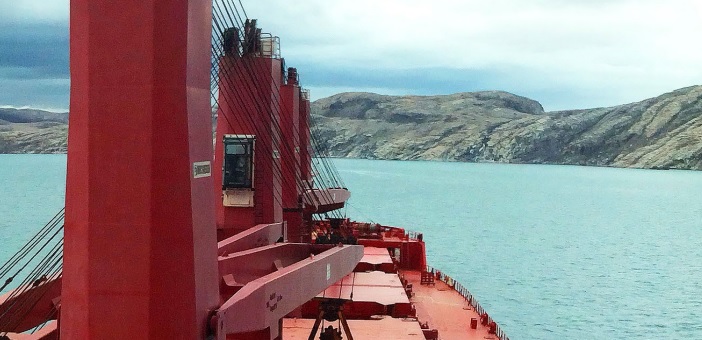Dry bulk cargo operator ESL Shipping published its first Sustainability Report, reporting its environmental, social and economic performance through 2017.
Mikki Koskinen, Managing Director of ESL Shipping, stated:
“During last few years we have devoted a lot of time and resources to improve our human and technology standards, but we acknowledge we still are far away from being perfect and a lot of work remains. This report shows our commitment to responsibility and openness.”
Highlights
- Retention rate remained high and was 95 %.
- Lost time injury frequency decreased by 67 % compared to 2016.
- Noise emissions at port of ms Eira decreased by 30 % after installation of additional silencer.
- 101 maritime students participated onboard training on ESL Shipping’s vessels.
- Consumption per cargo ton remained on a same level compared to 2016.
- Sulphur emissions decreased by 23 % compared to 2016.
- Net sales increased to 79.3 m EUR and operating profit to 13.5 m EUR.
Reporting its environmental performance, the company said this year it has mainly sailed in the Baltic Sea and the North Sea, where it used ultra-low-sulphur fuel oil with sulphur content less than 0.1%.
The report refers also to the incident involving the supramax dry cargo vessel ‘Arcadia’ that was found to contain about 0,15 % sulphur to its fuel sample in a 0.1 % Sulphur Emission Control Area (SECA), during a random inspection.
Despite all efforts to comply with the 0.1 % Sulphur cap within the Sulphur Emission Control Area in the form of trained crew, established procedures and fuel complying with the Sulphur cap, there can still be issues with complying with the regulations… A rigorous investigation was undertaken to find the root cause. It turned out that high-sulphur fuel used outside the SECA-area had been pumped into the low sulphur day tank thus contaminating the fuel in use. Procedures were amended both on Arkadia and on the rest of our vessels to prevent similar incidents from occurring.
In the area of safety culture, the company says mindset onboard starts from small details. Niklas Lindroos, Master, ms Eira, said:
Even though helmet and hearing protectors may sound small things, they play a crucial role to ensure safety and health of crew members. Convincing everyone to wear personal protective equipment (PPE) wasn’t an easy task. The best way to convince everyone onboard is to discuss the benefits and ensure that equipment is easy and comfortable to use.
Everyone has to understand that this only works and it’s not worth destroying, for instance, your hearing only because you work in a loud environment. I’m happy with the new helmets as the hearing protectors are now integrated to helmet. Thus, it’s not possible to forget
them when you descend to the cargo hold, for instance.
Further information may be found herebelow:































































